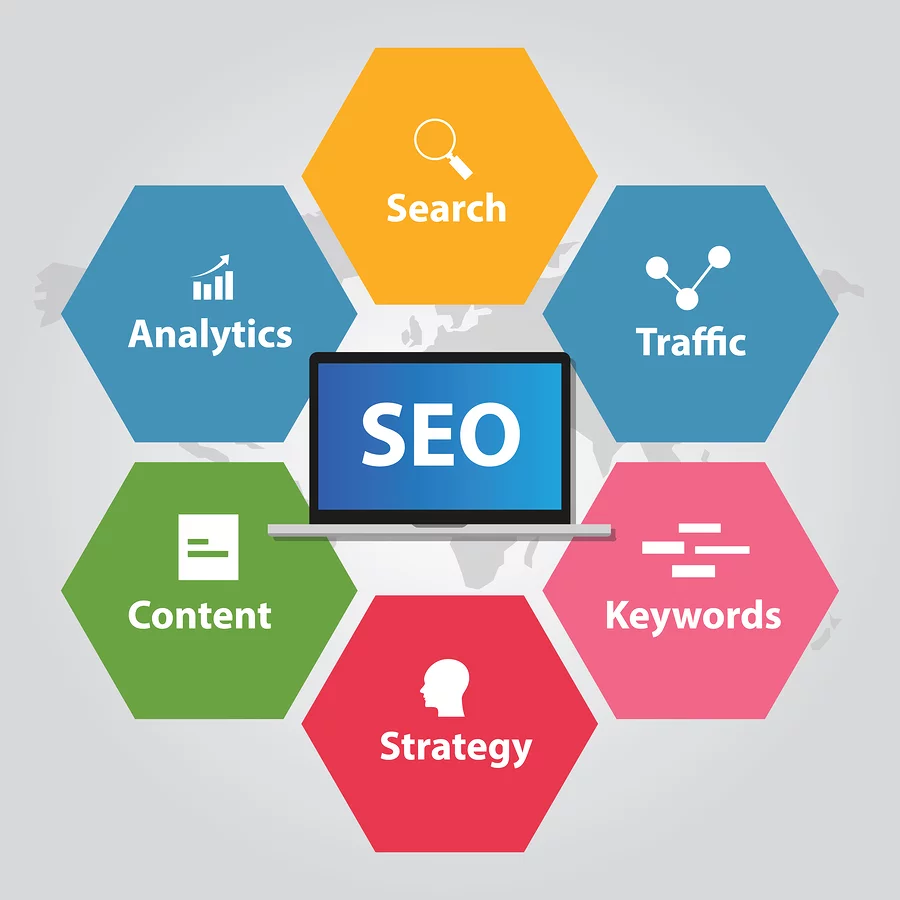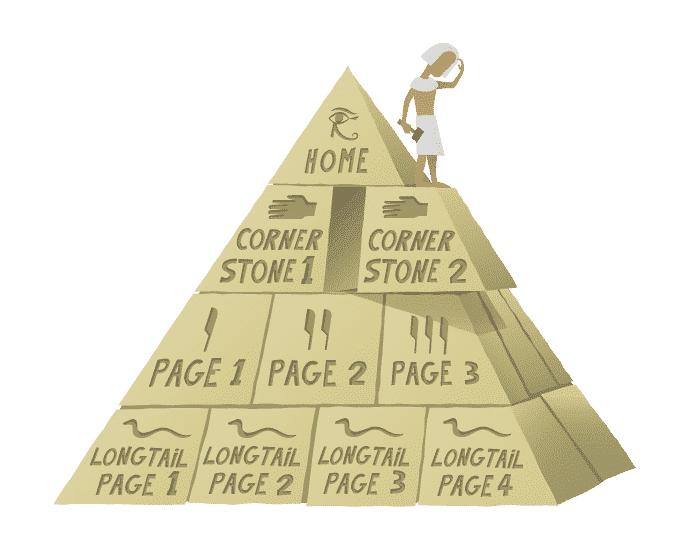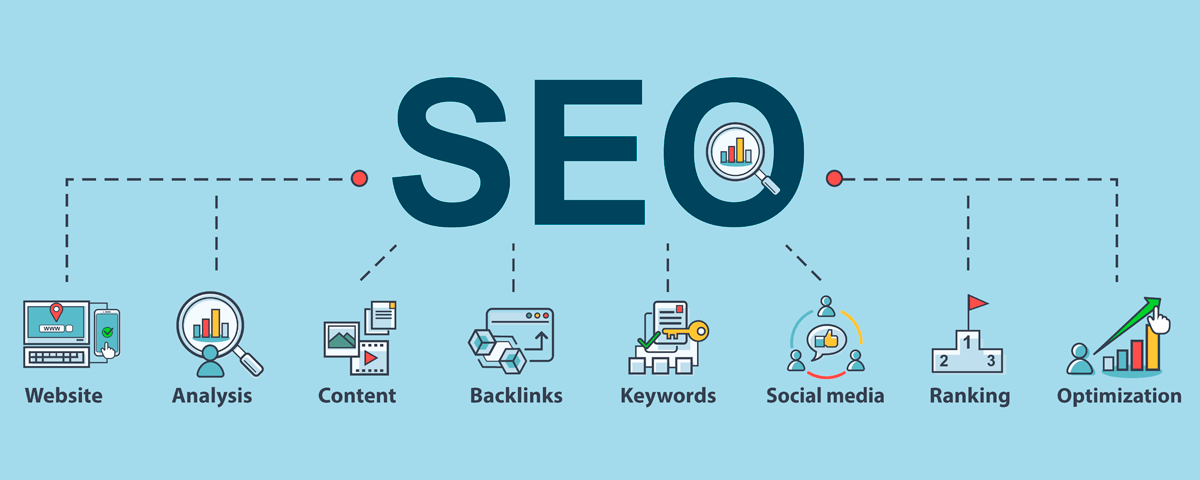
How to Optimize AI Marketing for Improved SEO Performance
October 20, 2023
How to Master Keyword Research for Effective SEO
October 23, 2023
Search engine optimization (SEO) is essential to help your website get noticed in an increasingly crowded online landscape. SEO strategies can not only help you get more traffic, but also maximize visibility for your website.
In the digital age, where countless websites jostle for attention, having a beautifully designed website isn’t enough. To stand out in the crowded online space, you need to master the art of Search Engine Optimization (SEO). In this comprehensive guide, we’ll walk you through the ins and outs of SEO, providing you with proven strategies to maximize your website’s visibility and climb the search engine rankings. So, fasten your seatbelts and get ready for an exciting journey through the world of SEO!
Understanding the Importance of SEO
The Digital Landscape
The internet is a vast landscape, and your website is just a tiny speck in it. But, don’t fret! With the right SEO strategies, you can make that speck shine like a star. In this section, we’ll delve into why SEO is vital for your online success.
The digital realm is enormous, with over 4.9 billion internet users worldwide. Picture this – when you search for something on Google, you’re competing with millions of other web pages for that coveted top spot. SEO helps you rise above the competition, making your website more visible to the people who matter.
The SEO Advantage
Imagine having a store in the middle of a bustling city but with no signboard. No one would know you exist, right? That’s precisely what SEO does for your website. It’s like placing a giant, neon signboard right in the heart of Times Square, ensuring that your target audience finds you.
What This Post Covers
In this blog post, we’ll cover a wide range of SEO strategies, from basic to advanced, to help your website shine. Here’s a sneak peek of what’s coming:
Keyword Research: Understanding the foundation of SEO. On-Page SEO: Crafting SEO-friendly content and optimizing your web pages.
Off-Page SEO: Building your online reputation and authority.
Technical SEO: Enhancing your website’s performance and user experience.
Local SEO: Navigating the world of local searches.
Content Marketing: SEO beyond keywords. But before we dive into the nitty-gritty, let’s lay the groundwork for success.
Setting the Stage for Success
The Importance of a Well-Designed Website Think of your website as the digital face of your business. Just like you wouldn’t go to a crucial meeting in your pajamas, your website needs to look the part. It should be well-designed, easy to navigate, and aesthetically pleasing. Your website’s design is the first impression you make on your visitors, and as they say, first impressions matter.
Mobile Responsiveness
In today’s mobile-centric world, a responsive design is non-negotiable. Over half of all web traffic comes from mobile devices, and Google rewards mobile-friendly websites with higher rankings. So, if your website doesn’t look good on a smartphone, you’re missing out on a vast audience.
User Experience (UX)
Have you ever visited a website that was so frustrating to navigate that you quickly hit the back button? Well, you’re not alone. User experience plays a pivotal role in how your audience perceives your website. A good user experience ensures that visitors stay longer, engage more, and return. We’ll explore this in more detail in the ‘On-Page SEO’ section.
Now that we’ve set the stage let’s dive into the first and one of the most critical aspects of SEO – Keyword Research.
Keyword Research: The Cornerstone of SEO Unveiling the Power of Keywords
You can think of keywords as the compass that guides your website to its destination: higher search engine rankings. Here’s what we’ll be covering in this section:
What Are Keywords?
Keywords are the words and phrases that people type into search engines when looking for information, products, or services. They are the bridge connecting your content to your target audience.
Types of Keywords (Short-Tail vs. Long-Tail)
Keywords come in various shapes and sizes. Short-tail keywords are concise and general, while long-tail keywords are more specific and usually longer. Understanding the difference is vital for your SEO strategy.
The Intent Behind Keywords
Not all keywords are created equal. Some express a desire to buy, while others seek information or solutions. Understanding the intent behind keywords helps you tailor your content accordingly.
Tools for Keyword Research
Now that you understand the basics let’s delve into the practical side of keyword research. You don’t need to be a mind reader to figure out which keywords will work best for your website. There are numerous tools at your disposal:
Google Keyword Planner
This free tool from Google is a goldmine for keyword research. It provides data on search volumes, competition, and keyword suggestions, making it an essential part of any SEO strategy.
SEMrush
SEMrush is a powerful, all-in-one SEO tool. It not only helps with keyword research but also offers competitor analysis and more. It’s like having a Swiss Army knife in your SEO toolkit.
Ahrefs
Ahrefs is another comprehensive SEO tool that excels in backlink analysis. It also offers keyword research capabilities, allowing you to uncover new opportunities and monitor your website’s performance.
Ubersuggest
Ubersuggest, created by SEO guru Neil Patel, is a user-friendly tool that provides keyword suggestions, search volume data, and insights into top-ranking pages.
With these tools, you can take the guesswork out of keyword research and make data-driven decisions.
Competitive Analysis
You don’t have to reinvent the wheel in SEO. Your competitors can be a goldmine of information. Here’s how you can leverage competitive analysis:
Spying on Competitors
In the world of SEO, a little healthy spying is not only acceptable but encouraged. Tools like SEMrush and Ahrefs can help you identify your top competitors.
Identifying Keyword Gaps
By analyzing your competitor’s keywords, you can discover gaps in your own strategy. Find keywords they’re ranking for, but you’re not, and capitalize on them.
Leveraging Competitor Strengths
Don’t just stop at identifying gaps. Analyze what your competitors are doing right. Is it their content, backlinks, or social presence? Emulate their successful strategies while adding your unique twist.
Keyword research is just the tip of the SEO iceberg. Armed with the right keywords, you can now move on to the next crucial aspect of SEO – On-Page SEO.
This comprehensive guide to SEO is well underway, and we’ve just scratched the surface. In the upcoming sections, we’ll explore on-page SEO, off-page SEO, technical SEO, local SEO, and content marketing. Stay tuned for more insights, strategies, and a sprinkle of humor to keep you engaged. We’re on a mission to maximize your website’s visibility, and we’re just getting started!

Why SEO is Important
Search Engine Optimization, commonly known as SEO, is a fundamental aspect of modern online marketing and web presence. It plays a crucial role in boosting the visibility and accessibility of websites, making it an indispensable strategy for businesses, website owners, and content creators. Here’s why SEO is of paramount importance:
-
Enhanced Visibility: In a vast and competitive digital landscape, billions of searches are conducted daily on search engines like Google. SEO helps your website rank higher in search engine results pages (SERPs), making it more likely to be discovered by users. Improved visibility is essential to attracting organic, non-paid traffic to your site.
-
Credibility and Trust: Websites that appear on the first page of search results are often perceived as more credible and trustworthy by users. A well-optimized site signals to both search engines and visitors that your content is relevant, valuable, and reliable. This trust is a valuable asset for businesses and individuals alike.
-
Increased Organic Traffic: SEO focuses on optimizing your website for specific keywords and phrases relevant to your content or business. When your website ranks for these keywords, you attract highly targeted organic traffic. These visitors are more likely to convert into customers, subscribers, or loyal readers.
-
Cost-Effective Marketing: While paid advertising can be effective, it can also be expensive, especially for small businesses and startups. SEO offers a cost-effective alternative. Once your website ranks well, you continue to receive organic traffic without paying for each click, making it a sustainable long-term strategy.
-
Improved User Experience: SEO is not just about keywords; it also encompasses factors like website speed, mobile-friendliness, and user-friendly navigation. A well-optimized website provides a better user experience, reducing bounce rates and keeping visitors engaged.
-
Competitive Advantage: Your competitors are likely investing in SEO. To stay competitive in your niche or industry, you need to do the same. By outperforming competitors in search rankings, you gain an edge that can translate into more business and success.
-
Local SEO for Targeted Audiences: For brick-and-mortar businesses, local SEO is crucial. Optimizing your website for local searches helps nearby customers find your physical location, contact information, and operating hours. This is especially vital for restaurants, shops, and service providers.
-
Analytics and Data Insights: SEO tools and analytics platforms provide valuable data about your website’s performance. You can see which keywords are driving traffic, which pages are most popular, and where improvements are needed. This data-driven approach allows you to refine your content and strategy for better results.
-
Adaptation to Changing Trends: SEO is a dynamic field. Search engines frequently update their algorithms, and user behavior evolves. Staying on top of SEO trends and best practices ensures that your website remains relevant and doesn’t fall behind.
-
Global Reach: SEO is not limited by geographical boundaries. It enables businesses and content creators to reach a global audience. Whether you’re a local store looking to expand or a content creator with worldwide aspirations, SEO can help you achieve your goals.
In conclusion, SEO is the cornerstone of successful online visibility and marketing. It helps your website rank higher in search results, builds credibility and trust, and drives organic, targeted traffic. As the digital landscape continues to evolve, SEO remains an essential strategy for anyone looking to succeed online.


